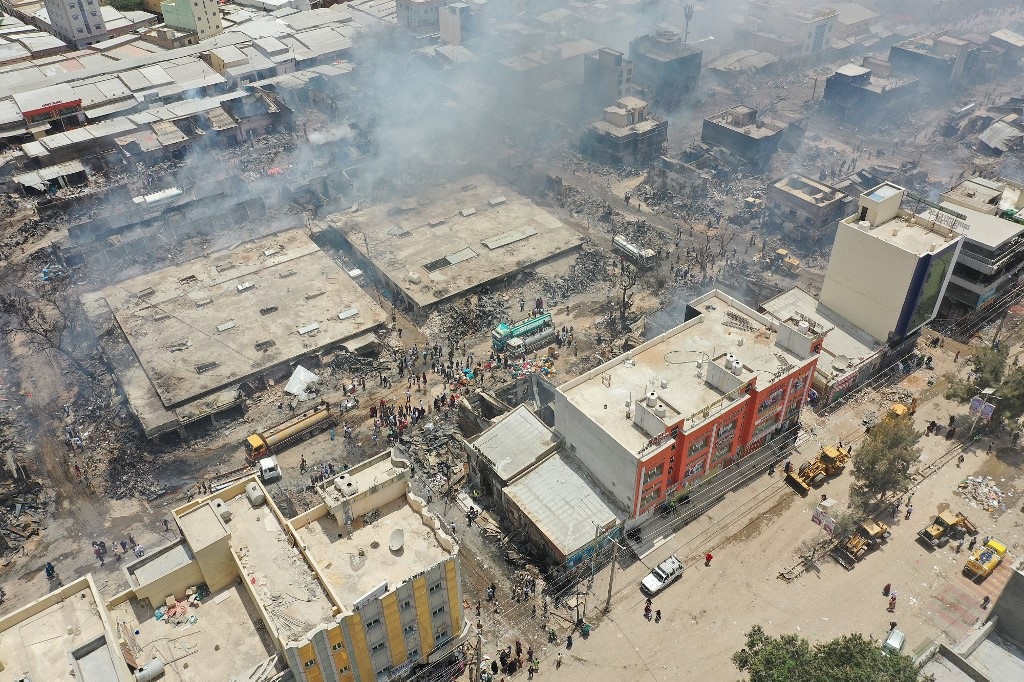
- Las Anod Hospital in Somaliland has been hit four times in three weeks during fighting between the government forces and militias.
- Doctors Without Borders and other health workers fear for their safety as fighting rages on.
- Meanwhile, there is a blood shortage at the crippled hospital.
One of the main referral hospitals in Somalia's breakaway region of Somaliland was hit for the fourth time in three weeks during fighting between government forces and militias.
The main hospital in Las Anod, the region's administrative capital of the Sool, is run by Doctors Without Borders (MSF).
MSF's country representative for Somaliland and Somalia, Djoen Besselink, said the hospital was attacked during "indiscriminate fighting" and infrastructure was destroyed, affecting the operations.
"This time, it [the attack] caused partial damage to the structure and brought a stop to activities in the paediatric ward and blood bank," he added.
With the children's part of the hospital destroyed it poses a great danger to infants and toddlers' health needs.
There is high demand for blood in the emergency room, one part of the hospital that remained fully operational, but there is a shortage as more casualties are brought in.
Besselink said:
Hospital staff fear for their lives and have nowhere to hide because the security situation in the whole of Somaliland has deteriorated.
"Staff and colleagues tell me they are afraid to be in the hospital, they can only pray because they cannot protect themselves as there is hardly any safe places to hide and the structure is not protected against these indiscriminate attacks," he added.
MSF is caught in the middle as it provides healthcare to both sides of the conflict.
Besselink said:
Somaliland broke away from Somalia in 1991 and declared its independence.
However, Somaliland's sovereignty is not recognised internationally.
Until 1960, it was a British protectorate, and it became independent for five days then it was merged with Somalia which was, at the time, under Italian rule.
The call for independence grew over the years and a rebel group, the Somali National Movement (SNM), was founded in the 1980s, leading to the declaration of independence in 1991 when Somalia's military dictator, Siad Barre, was ousted.
Barre's forces were behind ethnic cleansing that led to tens of thousands of deaths during a civil war fuelled by ethnicity and tribalism.
Throughout the 1990s, SNM crafted a new constitution for Somaliland, which was endorsed by a public referendum in 2001.
Those that push for Somaliland's recognition argue along the lines the region was ethnically and culturally different from Somalia.
With its currency, passport, army, and elections being observed by the European Union, it has the makings of an independent country.
Compared to Somalia, it has seen fewer terror attacks since 2008.
But among African Union (AU) states, recognising Somaliland would give other secessionist movements reason to seek independence.
Already, the issue in Ethiopia's Tigray region led to what has become known as the 21st century's deadliest conflict.
The News24 Africa Desk is supported by the Hanns Seidel Foundation. The stories produced through the Africa Desk and the opinions and statements that may be contained herein do not reflect those of the Hanns Seidel Foundation.


